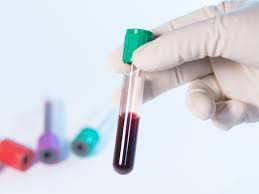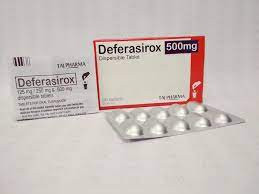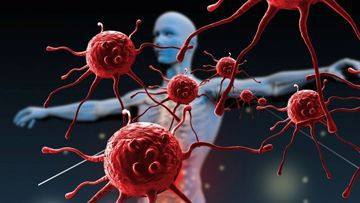Definition
Blood is a vital component of the human body, consisting of plasma, platelets (thrombocytes), white blood cells, and red blood cells. While all blood types perform the same functions, they differ from one another based on the presence of specific antigens or proteins. Human blood is classified into different types or groups according to these antigens.
Antigens are substances capable of triggering an immune response. The ABO system is employed to classify human blood types, which include four main categories:
- Type A: Blood containing antigen A.
- Type B: Blood containing antigen B.
- Type AB: Blood containing both antigens A and B.
- Type O: Blood lacking both antigens A and B.
Moreover, blood types can be classified as either negative or positive, depending on the presence of the Rhesus D antigen factor, another protein antigen. If blood contains the Rhesus D antigen factor, as is the case for the majority of people, it is categorized as Rhesus positive. Conversely, if blood lacks the Rhesus D antigen factor, it is referred to as Rhesus negative. Rhesus negative is less common than Rhesus positive.
Blood incompatibility arises when a person receives blood of a different type from their own, leading to an immune system reaction. This condition can manifest in newborn babies due to disparities in blood type (particularly concerning the Rhesus factor) between parents.
Causes
Blood incompatibility occurs when the body's immune system reacts to disparities between the blood types it possesses and the blood type it receives. For instance:
- An individual with blood type A will experience an incompatible reaction with blood type B or AB.
- An individual with blood type B will experience an incompatible reaction with blood type A or AB.
- An individual with blood type O will experience an incompatible reaction with blood type A, B, or AB.
- An individual with blood type AB will not experience an incompatible reaction with blood type A, B, AB, or O.
In addition to the above, the Rhesus blood type can also be a factor. Individuals with a negative Rhesus blood type may experience an incompatible reaction with those with a positive Rhesus blood type, and vice versa.
Risk factor
Women with a negative Rhesus blood type who are pregnant with a partner having a positive Rhesus blood type, or whose partner's Rhesus type is unknown, are at an increased risk of blood type incompatibility during pregnancy. Likewise, there's a potential risk of blood type mismatch during blood transfusions if the patient's blood type is unknown. Therefore, blood type testing is essential to reduce the chances of blood incompatibility.
Symptoms
Symptoms that may arise due to blood type incompatibility during blood transfusion include:
- Back pain
- Blood in urine
- Chills
- Fever
- Nausea and vomiting
- Shortness of breath
- Increased heart rate
- Pain at the infusion site
- Chest pain
- Dizziness
- Respiratory distress leading to coughing
- Jaundice (yellowing of the skin and whites of the eyes)
- Acute kidney failure
- Low blood pressure
In newborns, symptoms of blood type incompatibility can range from mild to life-threatening. The two main symptoms in babies are jaundice and anemia, which result from the immune system attacking the baby's red blood cells. This leads to blood disorders that damage red blood cells, causing bilirubin to accumulate in the blood vessels. Subsequently, bilirubin levels in the blood increase, leading to jaundice and muscle weakness.
Diagnosis
Diagnosing blood incompatibility in newborns typically involves a blood test known as the Coombs test. This test identifies antibodies present in the blood of the baby, the parents, or the mother during early pregnancy to assess blood compatibility.
If jaundice symptoms are observed in the baby, a blood test can determine the bilirubin levels. Elevated bilirubin levels in the baby's blood may indicate an incompatibility of blood type (Rh type). For newborns under 24 hours old, the bilirubin level in the blood should ideally be less than 6 milligrams per deciliter.
Moreover, the doctor may conduct a blood test to assess the shape of the red blood cells. Damage to the red blood cells could indicate blood type incompatibility.
Management
If a reaction to blood type incompatibility occurs, it's crucial to halt the blood transfusion immediately. Your doctor may administer various treatments, including:
- Medications for allergic reactions (antihistamines)
- Medications to alleviate swelling and allergies (steroids)
- Intravenous fluids to restore fluid balance
- Treatment to elevate blood pressure if it drops too low
Not all patients with blood type incompatibility require treatment. In some instances, anemia may resolve spontaneously without intervention or dietary modifications. Treatment for blood type incompatibility primarily aims to prevent its adverse effects.
In cases involving babies with blood incompatibility, treatment options may include:
- Additional nutritional support
- Blood transfusions
- Rehydration with fluids
- Electrolyte supplementation to regulate metabolism
- Phototherapy
For moderate jaundice, some babies may benefit from increased frequency and volume of breastfeeding, as this enhances digestive movement and aids in the elimination of bilirubin.
Phototherapy entails placing the baby under fluorescent light to diminish bilirubin levels in the blood. Exposing the baby's skin to these light waves facilitates the conversion of bilirubin into components that the baby's body can process. The baby is positioned under special lights while wearing diapers and eye protectors during phototherapy.
Furthermore, babies with jaundice can undergo treatment with a biliblanket. This blanket utilizes fiber optics to break down bilirubin.
Complications
Incompatibility doesn't directly affect the pregnant mother but can result in hemolytic anemia in the baby. Hemolytic anemia occurs when the baby's red blood cells are destroyed faster than they can be replenished. Complications can vary in severity, ranging from mild to severe, including jaundice, liver failure, and heart failure.
For moderate side effects, most cases in newborns may not necessitate specific treatment. However, in severe instances, the baby may require a blood transfusion to replace damaged red blood cells.
Doctors may employ special light therapy to reduce bilirubin levels in a fetus experiencing jaundice. In some cases, early delivery may be considered to prevent serious complications from anemia. Other potential complications include kidney failure, low blood pressure requiring intensive care, and, in extreme cases, death.
Prevention
Identifying one's blood type is one of the best ways to prevent blood incompatibility. Blood typing of both the donor and the recipient can prevent blood incompatibility.
When to see a doctor?
Contact a doctor if you experience symptoms of blood incompatibility during or after receiving a blood transfusion or organ transplant.
Looking for more information about other diseases? Click here!
- dr. Pandu Lesmana
ABO Incompatibility. (2022). Retrieved 21 March 2023, from https://medlineplus.gov/ency/article/001306.htm
Blood Types. (2020). Retrieved 21 March 2023, from https://my.clevelandclinic.org/health/articles/21213-blood-types
What is ABO Incompatibility?. (2022). Retrieved 21 March 2023, from https://www.verywellfamily.com/abo-incompatibility-2634457
Rh Factor. (2022). Retrieved 21 March 2023, from https://my.clevelandclinic.org/health/diseases/21053-rh-factor
What is Rh Incompatibility?. (2018). Retrieved 21 March 2023, from https://www.healthline.com/health/rh-incompatibility
ABO Incompatibility. (2023). Retrieved 21 March 2023, from https://ufhealth.org/abo-incompatibility
ABO Incompatibility. (2023). Retrieved 21 March 2023, from https://accesspediatrics.mhmedical.com/content.aspx?bookid=1303§ionid=79662487
ABO Blood Group System. (2022). Retrieved 21 March 2023, from https://www.ncbi.nlm.nih.gov/books/NBK580518/


/630bb5d25a954.jpg)







